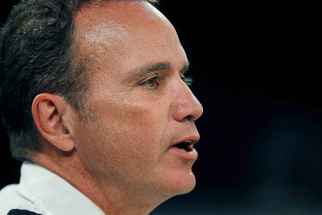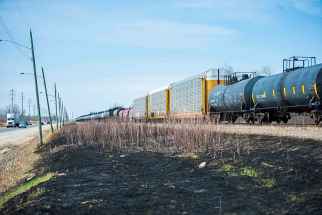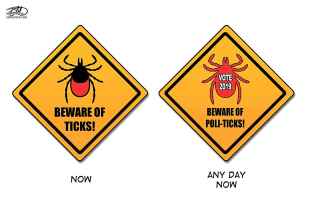City, province in the grips of a meth crisis, officials warn
Read this article for free:
or
Already have an account? Log in here »
To continue reading, please subscribe:
Monthly Digital Subscription
$0 for the first 4 weeks*
- Enjoy unlimited reading on winnipegfreepress.com
- Read the E-Edition, our digital replica newspaper
- Access News Break, our award-winning app
- Play interactive puzzles
*No charge for 4 weeks then price increases to the regular rate of $19.00 plus GST every four weeks. Offer available to new and qualified returning subscribers only. Cancel any time.
Monthly Digital Subscription
$4.75/week*
- Enjoy unlimited reading on winnipegfreepress.com
- Read the E-Edition, our digital replica newspaper
- Access News Break, our award-winning app
- Play interactive puzzles
*Billed as $19 plus GST every four weeks. Cancel any time.
To continue reading, please subscribe:
Add Free Press access to your Brandon Sun subscription for only an additional
$1 for the first 4 weeks*
*Your next subscription payment will increase by $1.00 and you will be charged $16.99 plus GST for four weeks. After four weeks, your payment will increase to $23.99 plus GST every four weeks.
Read unlimited articles for free today:
or
Already have an account? Log in here »
Hey there, time traveller!
This article was published 23/07/2018 (2695 days ago), so information in it may no longer be current.
Winnipeg is mired in a meth crisis.
Winnipeg Police Service Chief Danny Smyth — alongside Mayor Brian Bowman — delivered that message Monday where they painted a grim picture of the havoc wreaked by meth in the city’s streets.
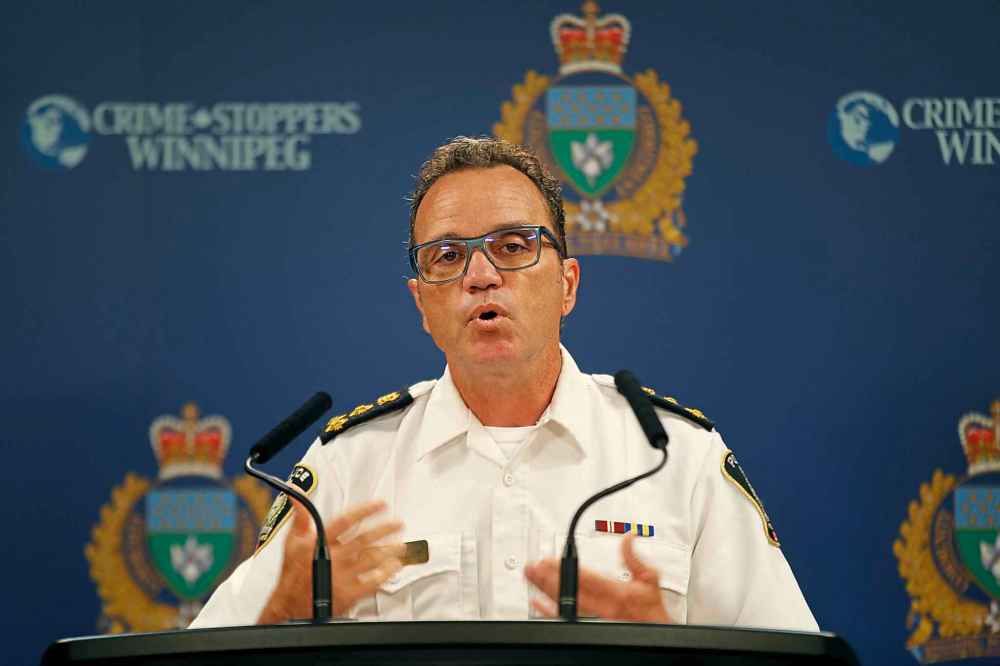
The police service had just released its 2017 annual crime stats report, which showed that violent, property and drug crimes are spiking, meth is more easily available and readily consumed, its purity is up and prices down, and police resources are increasingly taxed by social welfare calls.
“This is a community in crisis… In the last couple of years, meth use has increased dramatically here in Winnipeg, and really across Manitoba,” Smyth said.
He said meth, which often has a cartel stamp, is flooding into Manitoba from Mexico, fuelling violent crime and destroying lives, homes and neighbourhoods.
!function(e,t,n,s){var i=”InfogramEmbeds”,o=e.getElementsByTagName(t)[0],d=/^http:/.test(e.location)?”http:”:”https:”;if(/^/{2}/.test(s)&&(s=d+s),window[i]&&window[i].initialized)window[i].process&&window[i].process();else if(!e.getElementById(n)){var a=e.createElement(t);a.async=1,a.id=n,a.src=s,o.parentNode.insertBefore(a,o)}}(document,”script”,”infogram-async”,”https://e.infogram.com/js/dist/embed-loader-min.js”);
In 2017, violent crime in Winnipeg jumped seven per cent from 2016 and 10 per cent higher than the five-year average. In addition, the city’s crime-severity index is reaching levels not seen since 2012.
Statistics Canada data released Monday said Manitoba has the highest provincial per capita homicide rate in the country (3.51 per 100,000 residents), and Winnipeg has the highest police-reported violent crime severity index of any city.
Smyth said those statistics are tied to the prevalence of meth in Manitoba.
In 2017, one-third of the city’s 24 homicides were connected to meth, while almost half involved street gangs fighting over drugs, Smyth said.
Property and drug crimes jumped nine per cent and 15 per cent, respectively, and break-ins, home invasions and robberies increased.
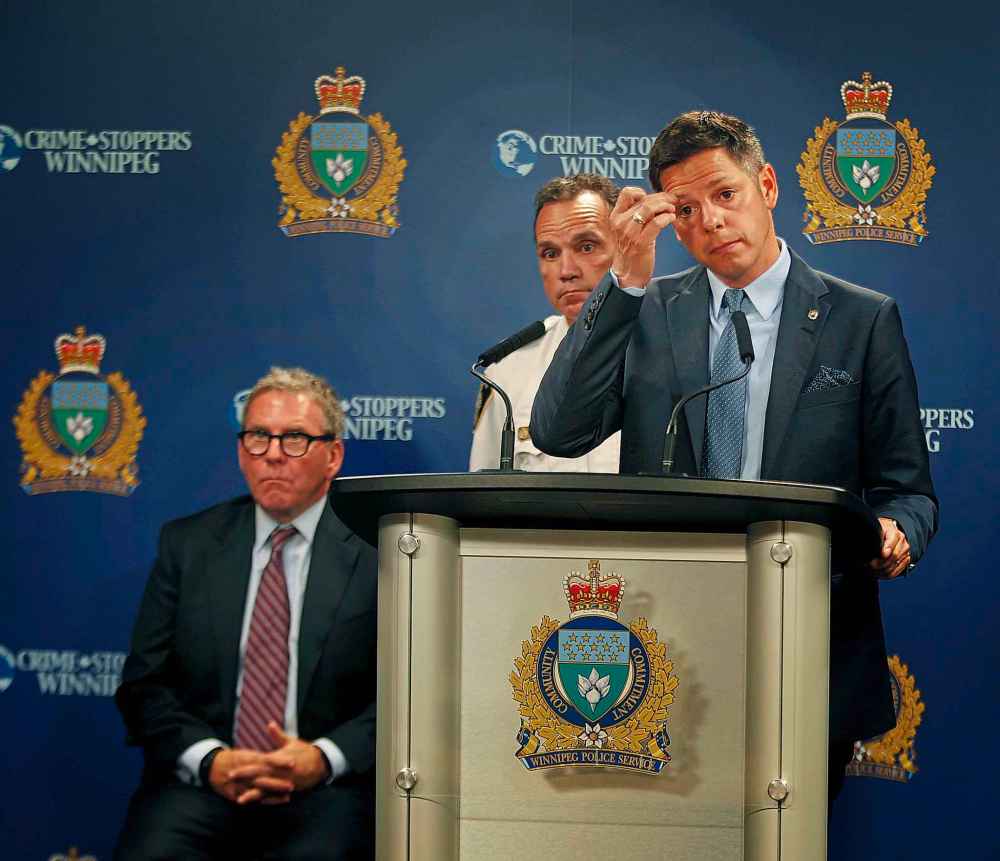
Aggravated assaults were up by 42 per cent increase over the city’s five-year average, while robberies increased 21 per cent over 2016. Drug possession charges increased 64 per cent year-over-year and meth-related calls for service spiked nearly 10 times.
“The volume of violent crime went up in virtually every area of the city… Aggravated assaults have gone up in virtually every area of the city. And our robberies have gone up significantly as well, placing us number one in that category in the country,” Smyth said.
“People are stealing things and pawning them to fuel their addictions. Sadly, not a week goes by where I don’t talk to a parent who’s begging me to arrest their kid for meth use because it’s the only way they can access treatment or ensure their safety. This is tragic.”
!function(e,t,n,s){var i=”InfogramEmbeds”,o=e.getElementsByTagName(t)[0],d=/^http:/.test(e.location)?”http:”:”https:”;if(/^/{2}/.test(s)&&(s=d+s),window[i]&&window[i].initialized)window[i].process&&window[i].process();else if(!e.getElementById(n)){var a=e.createElement(t);a.async=1,a.id=n,a.src=s,o.parentNode.insertBefore(a,o)}}(document,”script”,”infogram-async”,”https://e.infogram.com/js/dist/embed-loader-min.js”);
In February, Smyth told reporters the meth scourge was so bad it was keeping him up at night. On Monday, he said meth stretches police resources more than other illicit drugs that were popular in the past.
“When we run across people who are demonstrating particularly aggressive or psychotic behaviour, those become very difficult situations to manage,” he said.
Bowman pointed out the police budget has increased every year under his administration and is the largest budget in its history. That, he said, points to the fact this isn’t just a policing issue.
He believes there are gaps in social services for drug addicts, resulting in them taxing police resources that could be put to better use. Smyth echoed those comments.
“We need to find ways to be more efficient in how resources are allocated. Unfortunately, the reality today is that extensive and expensive police resources are being used for non-core police activities,” Bowman said.
Province needs to do more: Mayor

Mayor Brian Bowman says the Manitoba government must do more to address the destruction meth is causing on Winnipeg streets and in rural communities.

Mayor Brian Bowman says the Manitoba government must do more to address the destruction meth is causing on Winnipeg streets and in rural communities.
“I’ve been communicating to the province the urgent need in our community for greater mental health and addictions support. We do need increased focus and increased resources, from many stakeholders, starting with the province,” Bowman said.
Bowman made those comments at a Winnipeg Police Service news conference Monday where 2017 crime stats were released.
Bowman, alongside police Chief Danny Smyth, and Winnipeg Police Board chairman David Asper said the provincial government needs to do more to address the gaps in social services that are increasingly diverting police resources away from fighting crime.
“There is an urgent need for the province to really increase its focus and resources to provide those supports for our community,” Bowman said.
“Unfortunately, the reality today is that extensive and expensive police resources are being used for non-core police activities.”
Health Minister Kelvin Goertzen and Justice Minister Heather Stefanson fired back in a joint statement that says the provincial government “is not interested in playing politics with public safety.”
“These crime statistics are long-term trends in Winnipeg and in Manitoba, which is why we are taking action as a province to make our communities safer,” they wrote.
“We are working to help people deal with their addictions while stopping drug traffickers from distributing meth and opiates on our streets. There is plenty more work left to do, but we are confident our proactive initiatives will make Manitoba’s communities safer.”
The Tory ministers highlighted the recently announced criminal justice system modernization strategy and the $1.2 million in funding earmarked for the creation of five Rapid Access to Addictions Medicine clinics in the province.
They also pointed to the $1.4 million in investments from the province’s criminal property forfeiture fund, which will be used “in the coming months to address the issues of mental health, drug addiction and gang involvement that are driving increases (in crime).”
At the police news conference, Bowman was asked if he is concerned the meth-addiction crisis would dampen his prospects in the October civic election.
He said he wasn’t interested in politicizing the situation.
“These (trends) are far more important than a single election. These are real victims in our community. These are real people. The community needs to work collaboratively and strategically to address the root causes of crime,” he said.
The union that represents city police officers issued a release saying crime clearance rates have dropped and budget restrictions have taken a toll.
“When you don’t give frontline police officers the resources needed to do the job, crime is going to go up, period. The proof of that is clearly spelled out in this latest annual report. Criminals don’t plan their activities based on the rate of inflation. When you give them an opening, they take it,” said Winnipeg Police Association president Moe Sabourin.
The union said tying the police budget to the rate of inflation in the past few years has resulted in the cancellation of cadet classes, less training and fewer officers on the street.
ryan.thorpe@freepress.mb.ca
Twitter: @rk_thorpe
“One-half to two-thirds of all calls for police are to deal with families in crisis and individuals struggling with the challenges of mental health, medical and substance abuse. We need to be asking ourselves if police are the right resource to respond.”
The union that represents city police officers issued a release saying crime clearance rates have dropped and budget restrictions have taken a toll.
"When you don’t give frontline police officers the resources needed to do the job, crime is going to go up, period," said Winnipeg Police Association president Moe Sabourin.
The union said tying the police budget to the rate of inflation in the past few years has resulted in the cancellation of cadet classes, less training and fewer officers on the street.
Meantime, data released by Statistics Canada shows the situation in rural Manitoba is worse. The rural crime rate is 42 per cent higher than the urban crime rate, and despite the fact Manitoba only has seven per cent of Canada’s rural population, it accounts for 12 per cent of its rural crime.
Smyth said those figures illustrate that the meth epidemic in Manitoba isn’t confined to Winnipeg.
“Cities and towns across the province are seeing evidence of meth problems,” he said. “It doesn’t take a lot of meth to have an impact on a community.”
ryan.thorpe@freepress.mb.ca
Twitter: @rk_thorpe
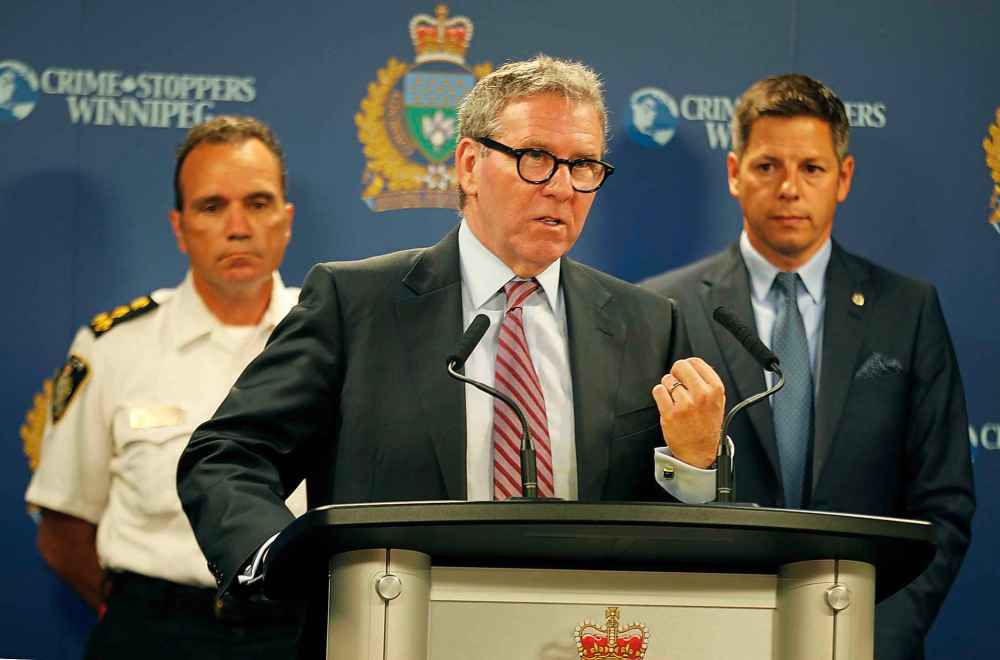

Ryan Thorpe likes the pace of daily news, the feeling of a broadsheet in his hands and the stress of never-ending deadlines hanging over his head.
Our newsroom depends on a growing audience of readers to power our journalism. If you are not a paid reader, please consider becoming a subscriber.
Our newsroom depends on its audience of readers to power our journalism. Thank you for your support.
History
Updated on Monday, July 23, 2018 7:05 PM CDT: Fixes typo


